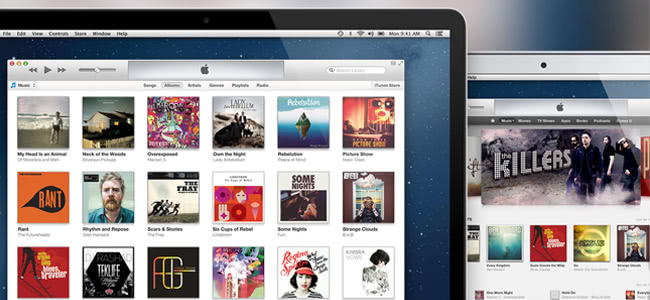While the eyes of the music industry are all pointed in the direction of Apple’s forthcoming interactive streaming service, which many expect to launch this year, the company has been busy cleaning house and making big changes in its famous download store.
Label executives believe the changes being made to iTunes are tied closely to whatever the tech giant is planning for its revamped Beats digital streaming service, though not all of them are enthusiastic about the changes being made to the world’s biggest digital music retailer.
As Billboard reports, on the surface, the changes appear to benefit major labels at the expense of independent outlets, leaving the indie sector with a diminished standing compared to where they were previously inside of the store, which is to say competitive.
Primarily, Apple have addressed what many users have been complaining of for some time and updating their style guide, deleting titles that do not conform to it. The project began over a year ago, with the cleanup launched last month.
“In some ways, the store has become a junk heap — with a lot of public domain records, re-records, sound-alikes, karaoke and tribute albums showing up in artist searches,” one indie distributor told Billboard, and many users are inclined to agree.
[include_post id=”428086″]
However, following updates to their style guide, Apple removed titles that, indie executives claim, did conform to the stylebook, but were removed regardless due to “editorial discretion” on the part of iTunes and Apple.
Furthermore, Apple has changed how titles will be selected for a place in the album carousels on each page. Previously, the carousels were chosen by iTunes’ editorial staff. They will now be determined by sales. This is being viewed as another benefit for major labels over indies, whose artists traditionally move fewer units.
“If you are a big major label executive with a superstar artist and want to make sure when someone enters that artist’s name they only see your product, you might be happy,” said one indie distributor.
“If you are a fan of having clean and unambiguous product on your website store, you might be happy. But if you are an indie distributor or label who is very compliant with Apple’s guidelines and yet has been most adversely impacted in the recent round of changes, you might not be so happy.”
[include_post id=”433714″]
But despite some indie label figures expressing frustration with the recent changes, few are willing to speak out and potentially alienate themselves from the company that many are predicting will soon own the music industry.
“If Apple is updating and publishing a style guide and if titles in the store conform to the style guide, it should be in the store,” said one indie executive, however. “Yet, they are taking down stuff without saying why they are taking it down; they just say editorial discretion; that is not right.”
Despite the sentiment, most labels are hoping to work it out with Apple. “We will discuss the issue with iTunes, and hopefully after we make our case, they will trust us enough to put the titles back up,” said another indie exec.
As for Apple’s seemingly impending domination of the music industry, one industry insider told Billboard that Apple’s plan for the music business “is to be the music business; it’s not to compete with Spotify”.
When you do the math, it makes sense. After all, the company already has 800 million credit cards on file (compared to Spotify’s 15 million subscriptions) and a huge number of people use Apple’s products, all of which have begun to make the switch to Beats integration.




































